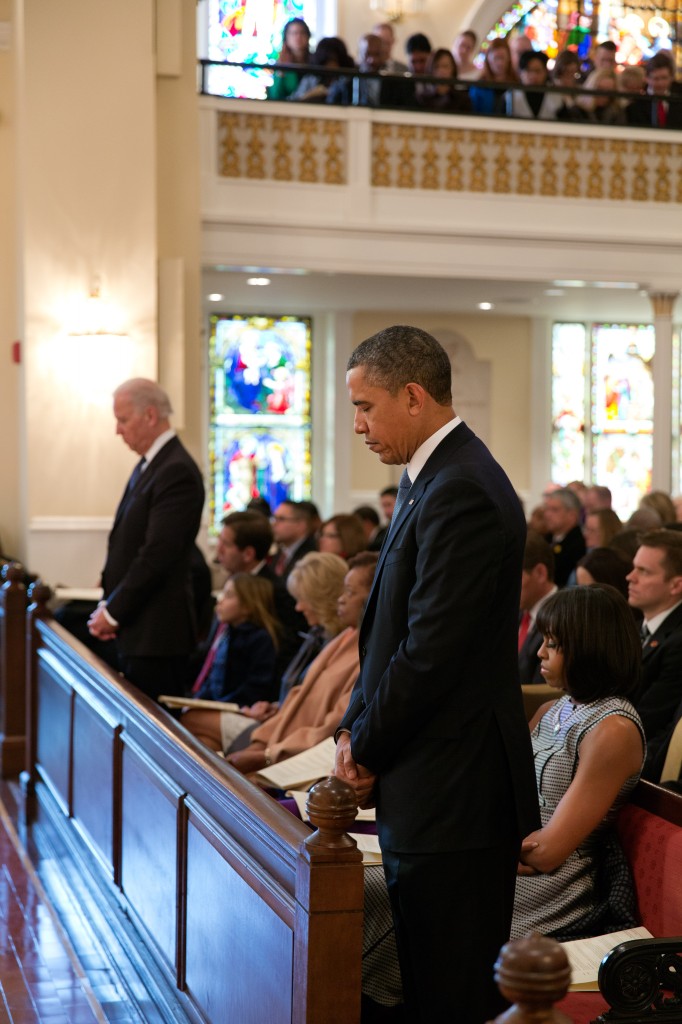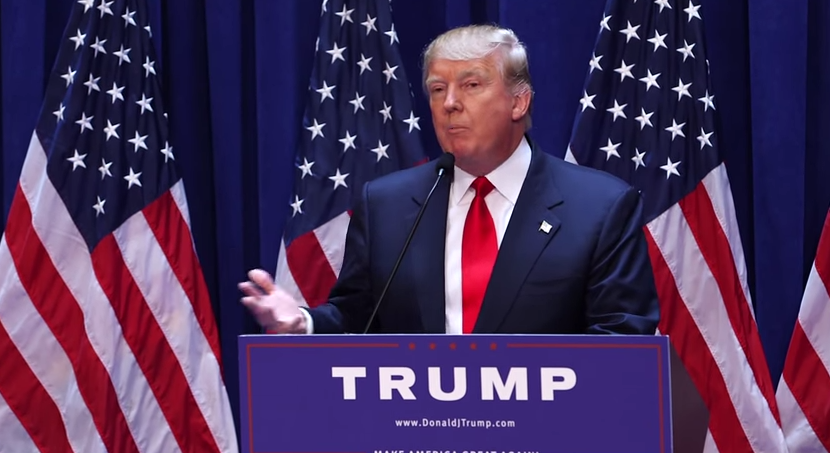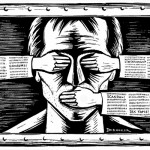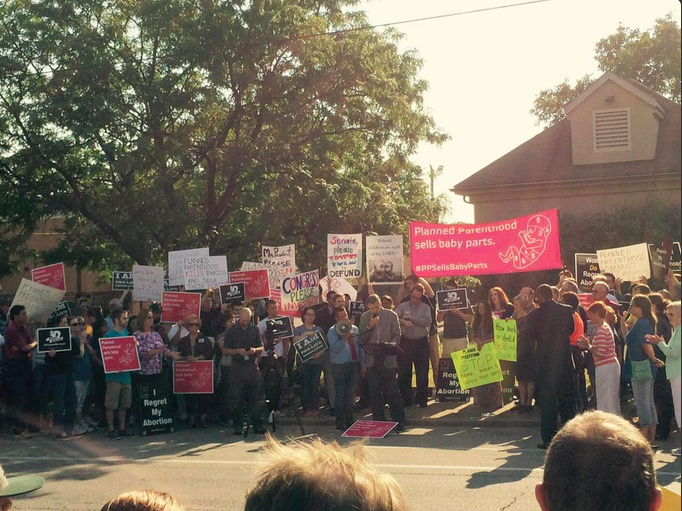Governor and Republican Presidential hopeful Scott Walker says he doesn’t know if President Obama is a Christian. I, for one, believe him. Why is it so hard for some to accept his answer?
The President says he is a Christian. This is, as Ross Douthat points out, an indisputable fact of public record. There’s no need to assume the governor was unaware of this when asked the question (he came close to implying as much, though, stretching credulity). By the same token, there’s no need to assume that the person who posed the question to Walker was unaware of this either.
So here’s the scenario: A reporter asks a politician to give his opinion on a matter, the facts of which are widely known as a matter of public record to almost everyone in the room and certainly to both the interviewer and the interviewee. You don’t have to be a politico to know what kind of question this is, and why it would be asked. In the words of Admiral Ackbar, it’s a trap. And it’s a trap because the “facts” of the question aren’t nearly as factual as they might seem.
President Obama identifies as a Christian. To some, that fact alone renders irresponsible any answer to this question other than a quick and unequivocal “Yes.” By this line of thinking, a person’s religion is a matter of self-identification. If they say what they believe, that’s what they believe, and that’s what we should say they believe. If the President says “I’m a Christian,” then, because religion is a matter of personal decision and conviction, there’s no right to challenge that identification. Obama says it, we believe it, that settles it.
That’s how many people think about religion. That’s how the media uniformly writes on it. The trouble is that such an understanding is contrary on nearly every level to how evangelical Christians–like Scott Walker–understand Christianity.
Evangelical Christians believe it is possible to identify as a true believer but be wrong. The Lord himself spoke of self-deceived people standing before Him at the end of the age, bewildered at their condemnation and convinced they were authentically faithful. Because evangelical Christianity emphasizes the need for personal conversion and individual (not just individual, but not just corporate either) regeneration, it understands true faith in Jesus as something for which there is never an infallible and absolute thermometer. Following Jesus’s dictum that “You shall know them by their fruits,” evangelicals believe the best (but not inerrant) indication that a genuine Holy Spirit-wrought conversion has happened is an obedient lifestyle which evidences a changed heart and transformed desires.
This is precisely the area where evangelicals have struggled–perhaps too light a word–with the President. True, for some and possibly many evangelicals, Christian faith is inextricably tied up into conservative Republican politics. But even when that’s not the case, identifying President Obama as one who has been changed by the Jesus of the Bible (remember, that’s the Jesus evangelicals believe in) is a complicated thing. The President’s views on abortion are far outside even the outer borders of evangelical ethics. His pursuit of compliance to the healthcare contraceptive mandate from Hobby Lobby demonstrated, for many evangelicals, a severe insensitivity to basic Christian conceptions of religious liberty and freedom of conscience (concepts that have an evangelical heritage in this country). In 2008, the President spoke dismissively of voters that “cling to guns and religion,” apparently putting faith in the same path of his disdain as the NRA and Republican immigration policies.
The obvious riposte to all of this is, “This just means that Obama isn’t evangelical, it doesn’t mean we can’t know if he’s a Christian.” But this response simply rearranges the fundamental failure of imagination committed by outraged pundits in the first place. Yes, evangelical and “Christian” are not synonymous, but “confessional” and “Christian” just might be. Because evangelicals trace their ecclesiastical heritage to theological principles (rather than, say, theological institutions like the papacy), confessionalism is considered the first, most basic metric of inclusion into Christian faith. It has explicit biblical support in the stories of two early converts in the book of Acts, an Ethiopian eunuch and a Philippian jailer. In both cases the moment of conversion and ordinance of baptism were signaled by confession of doctrine. Most American evangelical churches require a candidate for baptism to recite or at least affirm the core tenets of biblical Christianity, including the divinity of Jesus, His atoning death, and His physical resurrection from the dead.
Evangelicals like Scott Walker see a person like President Obama as at best a “semi-confessional” Christian. The President’s official denominational membership is in the United Church of Christ, which is by far the most socially liberal and least theologically rigid major denomination in the US. The UCC’s official statement reflects a”social gospel” orientation on the Christian faith; it declines to mention sin, atonement, or even what a Christian is. It’s hard to know which major body of Christians in the West could see the UCC’s “What We Believe” statement as anything other than pseudo-Christian.
Given all this, is Barack Obama a Christian? The trick is to understand that either a “Yes” or a “no” to this question requires justification. If yes, then why? Because he identifies as one? That’s not how evangelicals define Christianity or even understand faith. Is it because it would be rude to contradict what someone says about their religion? Not according to Jesus. Is it because the UCC is a confessional body and the President has confessed the core, historic doctrines of faith that put him in fellowship with the Nicene church? They’re not, and he hasn’t.
So why didn’t Mr. Walker say, “No”? Because, as I said above, he is an evangelical, and evangelicals believe that after all is said and done at the end of the day, true conversion, repentance and faith is something that has to happen inside all of us by the power of the Spirit. To answer confidently that the President is not a Christian would be, for Walker and evangelicals like him, to pretend to have exhaustive knowledge of the workings of another’s soul. It would be, in a very real sense, to play God.
Walker’s “I don’t know” was a good answer. It may not have been the political home run that his supporters would have liked to see. It may not have made for the best sound byte. But I believe Walker answered the question like a true evangelical, and refrained either from obscuring the real problems involved with identifying a person’s faith or from putting himself in Christ’s judgment seat. In a time in which both our politics and our religion are saturated with frauds, Walker sounded an authentic and authentically evangelical note.












